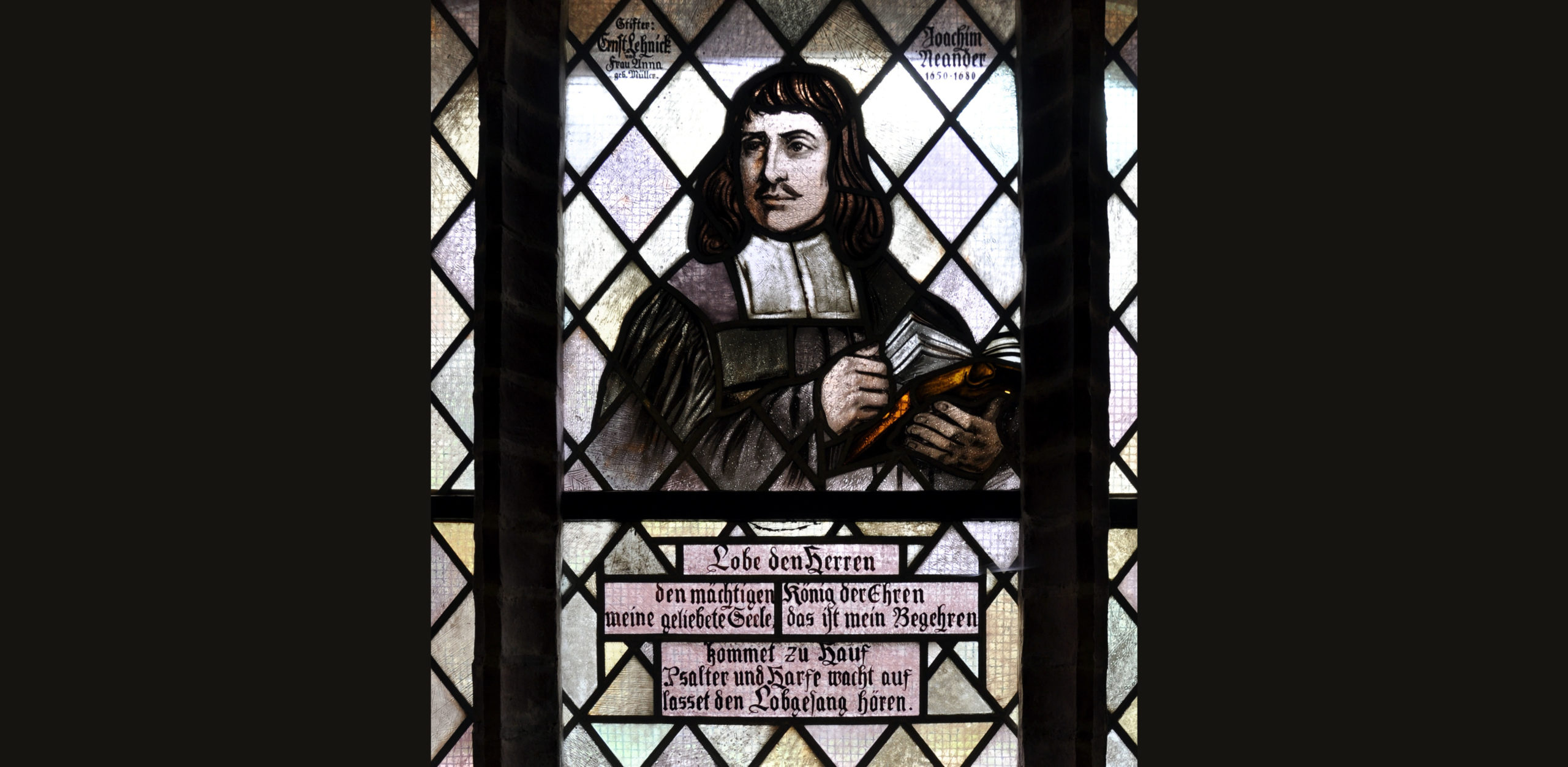
16 Apr An Enlarged Vision
Since its publication in 1680 Joachim Neander’s hymn, “Lobe den Herren, den mächtigen König der Ehren,” has been sung in Christian worship as a magnificent hymn of praise to God, who is Lord over all. While there are many English translations, the best known is that of Catherine Winkworth, “Praise to the Lord, the Almighty, the King of Creation.” Both versions of the hymn call Christians to extol the Lord for his sovereign rule and his blessing over all things: all creation, all aspects of our lives, including in our work. In this reflection, Venn Senior Teaching Fellow Luke Fenwick meditates on Neander’s hymn and its call to remember the Lord and enlarge our vision of his reign over all things.
We’ve included the German-language version of the text below. Versions of Winkworth’s translation abound online. You’ll also find the songs in both English and German embedded below; you can listen to the full versions on Spotify.
From its first line, Neander’s hymn bids us wake-up. Sing! Be heard! Adore the Lord! The hymn cannot be outbid: the Lord is sovereign and our adoration befits his lordliness. The Lord himself is our light; we are given to see his lordliness. In this way the hymn is profoundly concrete. It does not spiral off into abstraction or generalities. We are “beloved” (geliebete) and from love, now engulfing, arises the desire to adore the Lord in sung worship.
The Lord is beautiful and all his works share something of his beauty. We find this in both the content and the form of the hymn, to say nothing of its performance. God rules gloriously in his lordliness. The German noun Herr is translated “Lord,” and the adjective/adverb herrlich literally means “that which characterises a lord,” and in the course of time herrlich has come to mean “marvelous,” “glorious,” “beautiful.” The Lord’s lordliness is glorious and beautiful. So we sing: “Praise the Lord (Herr), who rules over all things so gloriously (so herrlich).”
This beauty is visible to us as, in a sense, God’s desire-evoking love, which also allows us to see truly. The hymnodist enjoins us then to see beauty and love in God’s providential care for his creation and across all dimensions of life. God’s care extends from our health to guidance to protection to work (Stand). The hymn dwells on God’s blessing in our work—it is seeable, the hymnodist has us sing. We are to extol God’s provision that issues as “streams of love from heaven.”
Perhaps we don’t always perceive the blessing or even feel like raising our voices when we do. Discipline appears indispensable. The gratitude we voice in song requires intention and follow-through—simply doing it. Hymns are corporeal and collective and memorial: they demand all of us, they join us to others, and they remember the Lord, who is present in our remembering (Mt 18:20). They help enlarge our vision as a result, and they sharpen it as well. They enlarge our hearts and help us sing praise and affirmation. As a poet once put it in another context, “Being here is glorious” (Hiersein ist herrlich). We sing because the Lord is glorious and all his works share in his beauty. We too receive a share and the blessing that comes with it, and it is difficult to avoid giddiness in singing of our own, divinely established beauty that features across our lives, especially in our work. The Lord, after all, “adorns us artfully and elegantly.”
You who adore the Lord, close with “amen”! (Lobende, schließe mit Amen!)
Lobe den Herren, Joachim Neander
1. Lobe den Herren, den mächtigen König der Ehren,
meine geliebete Seele, das ist mein Begehren.
Kommet zuhauf,
Psalter und Harfe, wacht auf,
lasset den Lobgesang hören!
2. Lobe den Herren, der alles so herrlich regieret,
der dich auf Adelers Fittichen sicher geführet,
der dich erhält,
wie es dir selber gefällt;
hast du nicht dieses verspüret?
3. Lobe den Herren, der künstlich und fein dich bereitet,
der dir Gesundheit verliehen, dich freundlich geleitet.
In wieviel Not
hat nicht der gnädige Gott
über dir Flügel gebreitet!
4. Lobe den Herren, der deinen Stand sichtbar gesegnet,
der aus dem Himmel mit Strömen der Liebe geregnet.
Denke daran,
was der Allmächtige kann,
der dir mit Liebe begegnet.
5. Lobe den Herren, was in mir ist, lobe den Namen.
Alles, was Odem hat, lobe mit Abrahams Samen.
Er ist dein Licht,
Seele, vergiss es ja nicht.
Lobende, schließe mit Amen!
(Image: “Fenster mit Portrait von Joachim Neander,” Andreas Praefcke, CC Zero)

